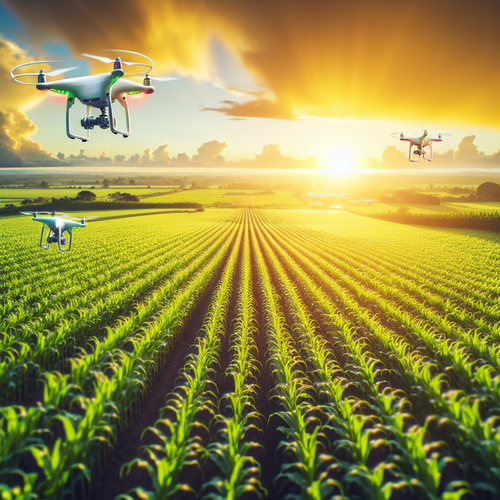
Innovative AI Applications in Sustainable Agriculture
Innovative AI Applications in Sustainable Agriculture
As the global population continues to rise, the demand for food production increases. Simultaneously, there is a growing awareness of sustainability and environmental conservation. In this context, Artificial Intelligence (AI) is stepping into the agriculture sector to innovate and address these challenges effectively.
Understanding AI in Agriculture
AI technologies are now widely adopted in agriculture, helping farmers optimize various processes, enhance crop yields, and significantly reduce resource waste. The incorporation of AI facilitates advanced data analysis and decision-making, ultimately leading to better agricultural practices.
Precision Agriculture
Precision agriculture is a method that uses AI to analyze data collected from various sources, including satellite imagery and sensor technology, to make informed decisions about planting, irrigation, and crop management. With precision agriculture, farmers can:
- Monitor soil health and nutrient levels.
- Optimize irrigation systems to prevent overuse of water.
- Receive real-time insights on crop health, enabling timely interventions.
Drones and AI
Drones equipped with AI technology are revolutionizing how farmers monitor their fields. These drones can survey large areas quickly and accurately, capturing high-resolution images that highlight crop issues like disease or pest infestations. For example:
- {high-tech drones allow farmers to see the exact growth stage of crops, helping them decide the best time to harvest.
- Drones can apply pesticides and fertilizers with high precision, reducing chemical usage and environmental impact.
Case Study: Smart Farming
One notable initiative that showcases innovative AI in sustainable agriculture is Smart Farming. This approach integrates IoT devices and AI algorithms to monitor farm conditions, streamline operations, and increase overall efficiency.
A recent post on our blog, Harnessing AI for Enhanced Cloud Security, discusses how AI technologies can be integrated into various sectors, including agriculture, to create smarter systems.
Benefits of AI in Sustainable Agriculture
The benefits of integrating AI into agriculture are immense:
- Increased Efficiency: AI helps farmers optimize resource usage, which leads to reduced costs and higher productivity.
- Minimized Environmental Impact: With data-driven approaches, AI ensures that the least harmful practices are employed, promoting biodiversity.
- Enhanced Decision Making: AI-enabled tools provide actionable insights, enabling farmers to make informed decisions based on predictive analytics.
Challenges and Future Outlook
While the future of AI in agriculture appears promising, challenges remain, such as the accessibility of technology and the need for training among farmers. Overcoming these barriers is essential for the successful implementation of AI solutions.
Conclusion
AI stands at the forefront of transforming sustainable agriculture practices. By adopting these technologies, farmers can enhance productivity, reduce environmental impact, and create a more sustainable food system. The journey towards AI-integrated agriculture is just beginning, and its potential to create a better future for both farmers and the planet is limitless.













